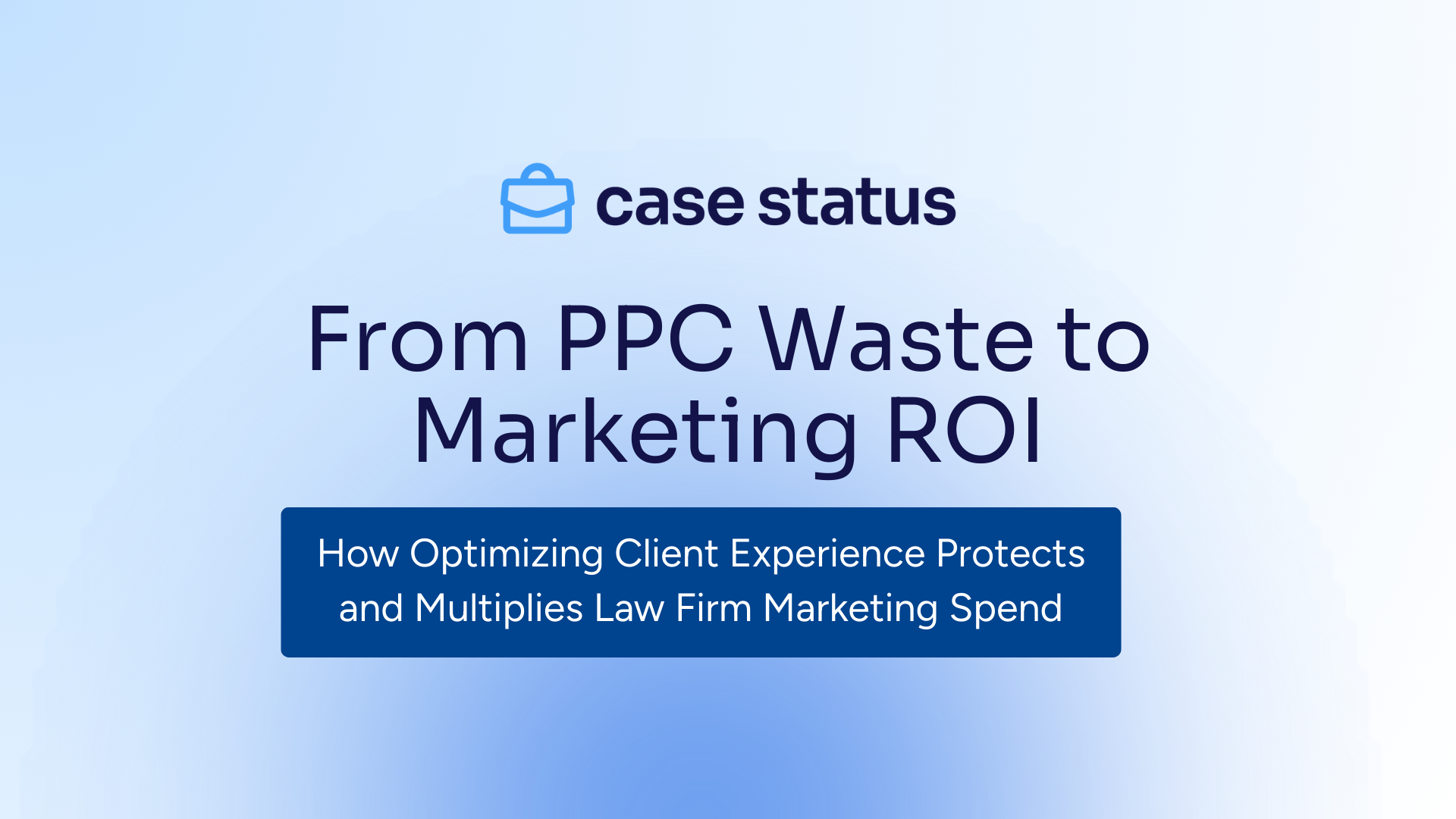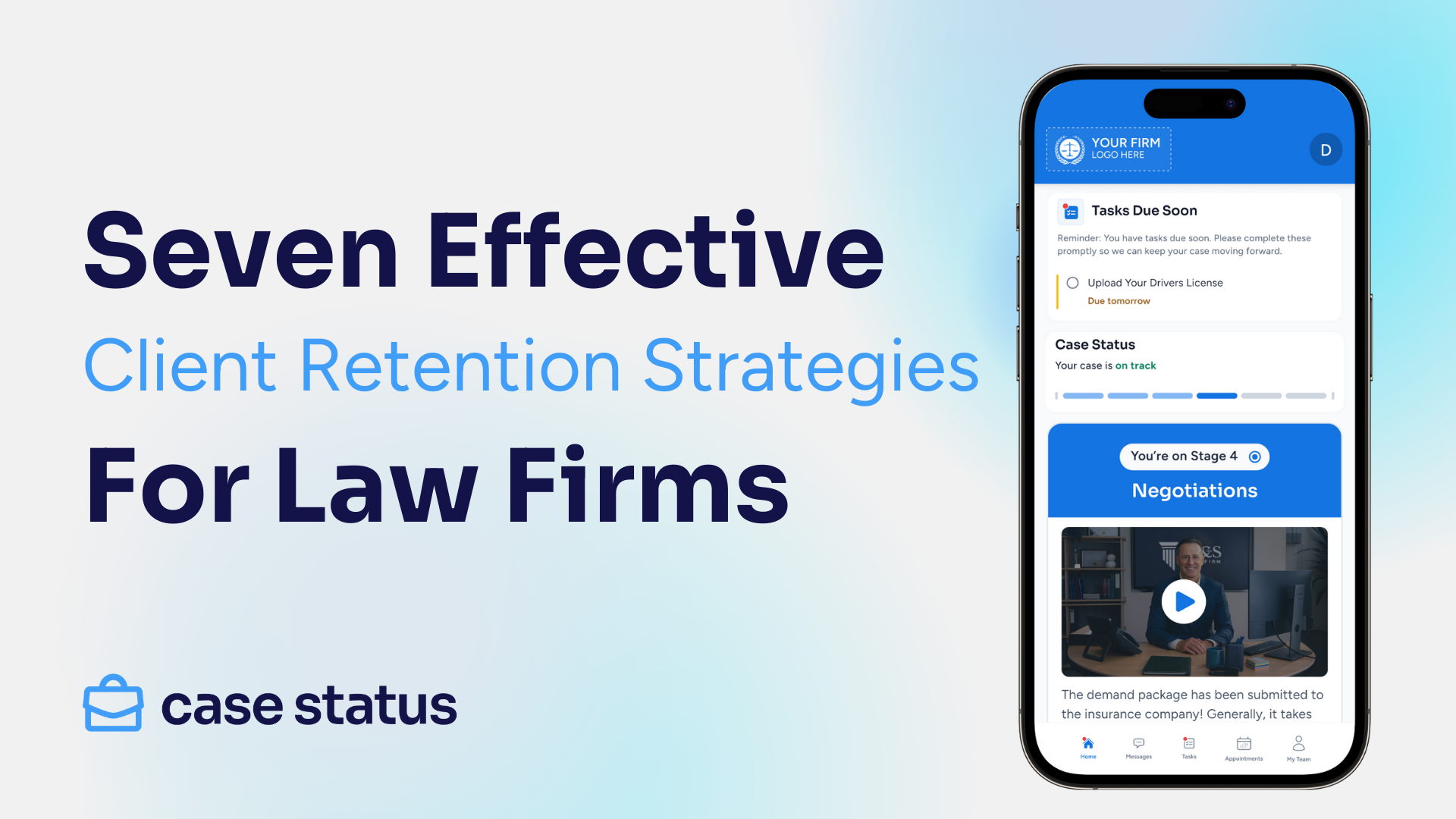
Among all the tools lawyers need to get the most out of their business, legal software is at the top of the list. The tools used by a lawyer ultimately shape the outcome of each case. Your firm may be run by talented legal professionals, but they can only perform within human limits. To go the extra mile and deliver unwavering service to your clients, you need law firm management software that’s up for the challenge.
Modern legal practices require technology to thrive, but they often struggle to implement the best tools lawyers need for their law firms. The learning curve is often the greatest barrier. Most law firms cite lack of tech knowledge as their largest hurdle to adopting more software.
The good news: legal software isn’t as complicated as you think. And when it comes to improving outcomes and managing your legal practice, learning how to use legal technology is key.

What Types of Technology Do Lawyers Use?
Usually, law firms use an all-in-one software called a CRM that supports integrations with other software. If you don’t know, integrations are like partnerships with different programs. For example, you can integrate QuickBooks to keep track of your accounting, or integrate Case Status to connect our client portal with your CRM.
Speaking of which, a CRM stands for client relationship management. This is a comprehensive tool for law firms that allows you to manage the entire client journey from start to finish. From personalized client intake and onboarding to document management and time tracking, the CRM is an all-in-one solution.
There are other types of legal technology that can support lawyer strengths and weaknesses in a practice. These include:
- CRMs
- Practice management platforms
- E-signature software
- E-filing software
- Digital marketing analytics
- Billing and accounting software
- Time tracking and calendaring software
- Legal research tools
- Document writing software
- Legal analytics software
- Contact management
- Collaboration tools
- Document management software
- Client communication tools, like Case Status
There is a type of legal technology right for every firm, whether they are a solo-run business with one attorney or a global business with dozens of lawyers around the world.
What Are the Skills a Lawyer Needs?
When it comes to succeeding as a lawyer, you need far more than just a law degree and license to practice in your state. Lawyers have to rely on business acumen, strong communication skills, time management, and much more to become successful.
Communication makes the difference between clients choosing to work with you or going to your competitor. It’s not solely about explaining a case — clients want to feel understood and supported. The better you can communicate with them, the more information you discover, and the more opportunity you have to achieve a good outcome for their case.
Time management influences a lawyer’s ability to serve all of their clients equally. As their attorney, you have the responsibility of providing the best possible service you can with all your available resources. Your time is your most valuable resource as an attorney. By being able to manage your schedule effectively, you can ensure you always dedicate enough time to your clients and still meet all your deadlines.
The beauty of legal software lies in its ability to make a firm run better without getting in the way. Technology doesn’t replace lawyers. Instead, it enhances their ability to perform their jobs.
For example, Case Status is a legal software that helps law firms communicate more effectively with clients thanks to in-app messaging and step-by-step case updates. Clients get a complete overview of their case, so they can feel more informed throughout the legal process. Instead of continuously making calls or waiting for emails, you can send updates to your clients. They can also receive notifications when certain actions are taken on your end, eliminating the need for them to call and ask, “What’s my case status?”
How Do You Measure Success as a Lawyer?
A growing business with strong referrals is a good sign that you are doing well as an attorney. Successful case outcomes is one way to measure your success, but how do you correlate these triumphs to your firm?
There is a specific marketing metric called net promoter score (NPS) that lets you know how likely a client is to recommend your firm to someone else. Through strategic touchpoints, Case Status gathers information in a non-obtrusive way, then uses client feedback to calculate your NPS.
The benefit of this is two-fold: by asking clients for their opinion on your service, you show them that you care about their experience and value your relationship. At the same time, their input provides your firm with the insight it needs to make meaningful improvements.
Lawyers can also rely on a host of other analytics to track their success, including digital marketing analytics, like web traffic and ad clickthrough rates (CTRs), and number of new client inquiries each month.
What are Kinds of Tools Lawyers Need for their law firm?
The tools lawyers need will vary by firm, but as a general rule, most attorneys can benefit from client management and communication software, e-signature tools, legal research tools, and legal billing software.
Use legal software to automate key tasks and reduce time wasted. For law firms, nothing is more valuable than the time they can invest in their clients. Apps like Case Status, along with CRMs such as Clio and MyCase, help firms perform all their most essential jobs on autopilot.
Most importantly, a firm-branded app can do wonders for your business. It exudes a level of sophistication and professionalism that clients appreciate. Case Status can help. Our portal may be built by experts, but it’s made for lawyers and their clients. We can customize an app that uses your logo and color to ensure a seamless client experience.
If you would like to learn more about Case Status for your business, contact us today so we can tell you more. Or look at our online demo here.



